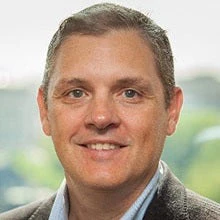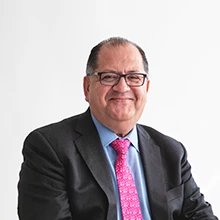 Photo credit: Sarah Farhat/World Bank
Photo credit: Sarah Farhat/World Bank
We are facing a series of overlapping and interconnected crises that are impacting lives and livelihoods almost everywhere. The combined effects of slow economic growth, rising conflict and fragility, persistent inequality, and extreme weather-related events have sent shockwaves across the globe.
High-income economies are showing signs of resilience, but the outlook for low-income economies and fragile countries remains deeply troubling.
Just a decade ago, we had cause for more optimism. There was significant progress in sustainable development between 1990 and 2015, with more than a billion people lifted out of extreme poverty. This was a monumental achievement, driven primarily by strong economic growth in China and India, and it brought the wealthiest and least-well off economies closer in income levels.
Yet, what seemed like a clear path to complete poverty eradication has since faded. Our new report shows that global poverty rates have only now gone back down to pre-pandemic levels, with forecasts indicating a trajectory for the coming years that is dismal at best.
Almost half the world’s population—around 3.5 billion people—is living on less than $6.85 a day, the poverty line for upper-middle-income countries. At a more extreme level, almost 700 million people are living on less than $2.15 a day, the poverty line for low-income countries. Extreme poverty has become increasingly concentrated in Sub-Saharan Africa or places affected by conflict and fragility.
But we know poverty is much more than just a lack of money or income. Millions of people today are deprived also of basic life essentials such as adequate nutrition, health care, education, security, and shelter.
Inequalities of income and opportunity remain high in many countries, especially in Latin America and Sub-Saharan Africa, posing a major impediment to improving people’s lives. Even when countries have experienced strong economic growth, it has not always translated into opportunities for the poorest or those vulnerable to falling into poverty.
As a global community we must work harder, more closely, and with greater urgency to reduce poverty and improve prosperity. Bold solutions and coordinated international action are critical if we are to emerge from today’s polycrisis toward a fairer, safer, and more prosperous world.
To move forward, we must boost inclusive growth and resilience. Poverty can be reduced much quicker when countries create more and better jobs and help people attain more assets over the long term. Steady employment offers not just income to cover life’s essentials, but it also provides opportunities to climb the socio-economic ladder.
Equally important is mitigating and adapting to climate change. Nearly 1 in 5 people are at risk from climate-related hazards globally, meaning they are likely to experience a severe weather shock in their lifetime from which they will struggle to recover. While policy priorities will differ across countries and regions, efforts to address climate change are essential.
More specifically, low-income countries should foster investment in human, physical, and financial capital. They need to create job opportunities and realize higher growth that is also inclusive to see the maximum impact on poverty reduction. While low-income countries contribute the least to global greenhouse gas emissions, they must also work to improve resilience to climate shocks.
Middle-income countries need to accelerate economic growth and enhance the productive capacity of poorer households by investing in education, infrastructure, and basic services. At the same time, these countries’ greenhouse gas emissions cannot be neglected; without action, their emissions will increase in the coming decades, eventually surpassing those of richer countries. They will need to ensure that growth reduces vulnerability and is also less carbon intensive.
Carbon emissions remain highest in high-income and upper-middle-income countries. While these emissions are projected to decline, the current rate of progress is not nearly fast enough to limit global warming. These countries need to accelerate the transition to low-carbon economies, while managing the potential short-term costs.

To really make progress in tackling these interlinked challenges, we also need a solid foundation of evidence. While data availability is improving in many countries, there must be greater investment in this area to produce more reliable and timely information, especially in the poorest countries. This data should be made public to allow for better monitoring of policy impacts and improving policy design.
We also won’t get very far without a significant boost in financing for sustainable development. Many developing countries lack access to affordable finance and face high debt burdens, hindering their ability to invest in essential areas such as education, health care, and infrastructure—all of which are key for sustained poverty reduction.
Financing is essential for low-income countries to achieve their development goals, and multilateral institutions can leverage this financing to secure even more resources. For example, the World Bank Group’s International Development Association, which provides support to the poorest and most vulnerable countries, is currently seeking a replenishment so it can continue to provide critical support to countries most in need.
Although progress has stalled, there is still hope. There are pathways forward that can quicken the pace of poverty reduction, boost shared prosperity, and protect our planet. The future depends on us keeping hope but also taking joint, urgent action.




Join the Conversation